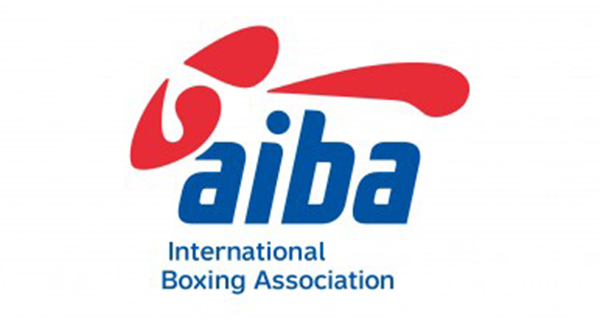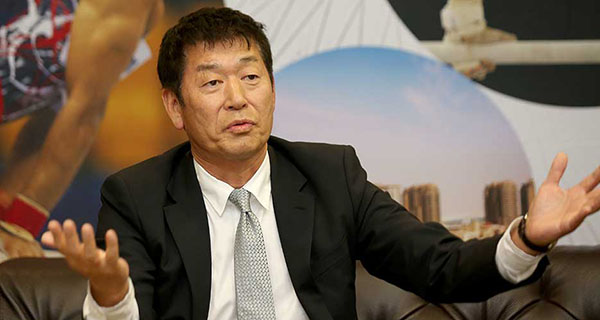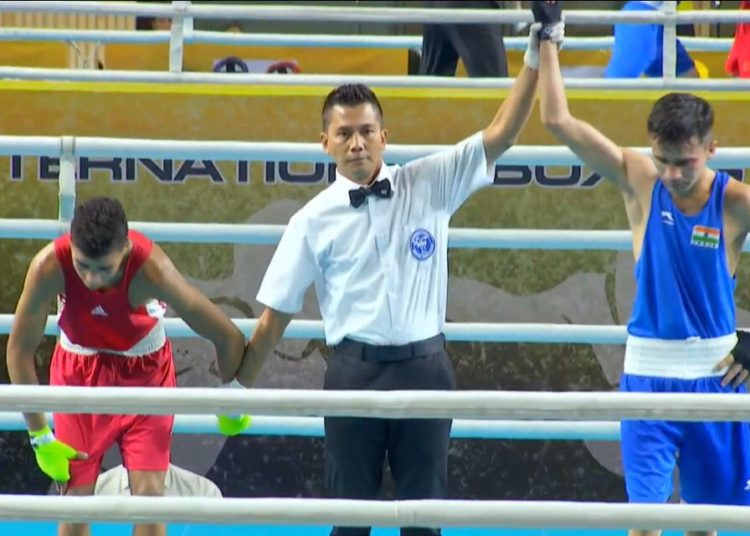CALCUTTA (India): Indian women boxing coach Mohammad Ali Qamar welcomed the new judging system that went on trial on Thursday ahead of next year’s Tokyo Olympic Games.
Currently some judges memorise counts, some on their fingers and some take notes to decide which boxer wins at each round.
But the new computerised system is expected to improve transparency in the scandal-hit sport.
Speaking to Khel Updates here, Qamar said, “It’s a very good initiative. The existing judging system have had demoralized a lot of boxers including me in the past. There had been twice in my case where I lost from a match-winning situation.”
Corruption in boxing
The innovation will make the judges’ scoring visible in real time, in a bid to avoid controversy that plagued Rio 2016 when dozens of officials and referees were suspended over alleged match-fixing.
Boxing contested since the ancient Olympics in Greece, had been dogged by corruption and irregularities in recent years.

So much so that the governing body AIBA became the first federation to have been stripped of the right to organise its own sport at an Olympics by International Olympic Committee (IOC).
“The new judging system will keep the judges under pressure as there’ll be transparency. We’re not sure when the new system will be implemented in Indian boxing,” said Ashim Das, vice-president of Bengal Amateur Boxing Association.
How the new scoring works
Under the new system, on trial at the Olympic venue, the five judges push a button for each scoring punch, with their marks appearing on a screen that is monitored by a supervisor.
The live scoring may also be made visible to the audience, with officials due to make a decision at a later date.
“As a coach, I fully support this new system backed by technology. It’s a bit too late, but I hope the new scoring process will allow the boxers to focus on the bout with a clear mind.
Mohammad Ali Qamar
Hidenori Fujiwara, an official from the firm Fujitsu that led development of the system, said judging in boxing is subjective.
“It has been visually impossible to see how judges are counting scoring hits during a round. It was all in their heads,” he said.
IOC punishes AIBA
The Lausanne-based AIBA declared bankruptcy with debts of about $17 million.
To compound their problem, IOC stripped Olympic status from AIBA last June by saying that “the AIBA had created very serious reputational, legal and financial risks” for the IOC and its American stakeholders”.

Relations between AIBA and IOC worsened following the 2016 Rio Games, when 36 officials and referees were suspended over allegations of bout fixing.
The crisis-riddled body also saw it elect a series of presidents, with Wu Ching-kuo forced out over claims of accounting fraud and Gafur Rakhimov, whowas replaced by Mohamed Moustahsane after outcry over alleged links to transnational criminal organisations.
Effort to wipe out fixing issues
The scoring system was put on display at the Ryogoku Kokugikan sumo stadium, where the Tokyo 2020 boxing competition will be held.
However, the tests also showed that it needed some fine-tuning.
Veteran judge Norio Tezuka said he pushed the wrong colour because the “blue” boxer was wearing red headgear.

He also said he was so focused on pressing buttons during his first trial that he felt he couldn’t properly monitor the overall course of the match.
International Gymnastics Federation (FIG) President and IOC member Morinari Watanabe, who heads the taskforce organising boxing at the Olympics, said, “Distrust of judges is there, but we’re working hard for justice.”
Olympic qualification
Qualifying tournaments for Tokyo are intended to be held in four continents from January through March, likely in London, China, Senegal and Argentina. All are recent or future hosts of Olympic boxing competitions. A final global qualifier is expected to be held in Japan.











